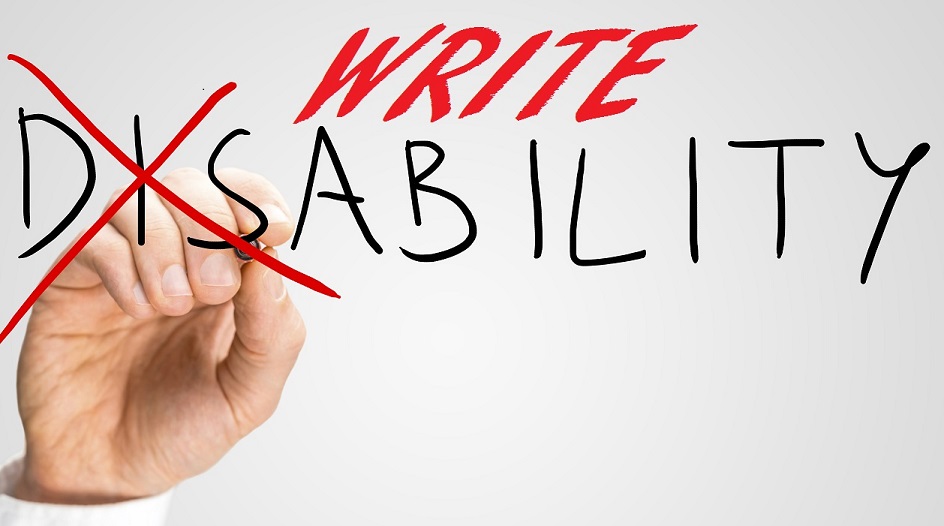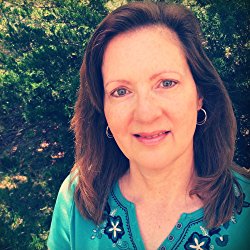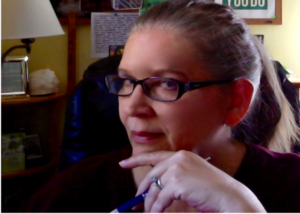Ann Pietrangelo is the author of No More Secs! Living, Laughing, Loving Despite Multiple Sclerosis, and Catch That Look: Living, Laughing & Loving Despite Triple-Negative Breast Cancer.
Tell us about Multiple Sclerosis. What it is, what it does or can do.
Multiple Sclerosis (MS) is a chronic neurological condition in which the immune system attacks myelin, the substance that protects nerve fibers in the central nervous system. There are progressive types and relapsing types, but long story short: it causes a communication gap between the brain and other parts of the body.
What makes MS so exasperating and difficult to comprehend is that it’s quite different for each person who has it. Not only that, but symptoms can change dramatically from one day to the next.
Some common symptoms are balance and coordination issues, vision problems, and numbness and tingling. Fatigue associated with MS can be debilitating, but these symptoms are just the tip of the potential iceberg.
You could go hiking one week but be unable to walk across the room the next. One person with MS might be a star athlete while another can’t stand up, but most of us are somewhere in between.
We don’t know the exact cause and there’s no cure for MS. Disease-modifying medications are exorbitantly priced and just one of the reasons people with MS shoulder a lifelong financial burden.
Despite all that, most people with MS manage to lead long, fulfilling lives.
How does having MS affect your writing? Or did you have to change anything about your routine due to MS?
I don’t know if I’d be a writer today if I didn’t have MS. In those first years, my symptoms were severe and disabling. My husband and I had to change everything about our lives. I transitioned to part-time work, which is when I turned to writing.
What started out as a blog experiment quickly morphed into paid writing. I learned how to work around symptoms and adapt to the ups and downs of MS.
A cancer diagnosis in 2010, followed by aggressive treatment, blew things up again. That’s when I decided to ditch the part-time job and devote my days to writing. While I’m not thrilled with how I got here, I’ve never been happier in my work.
What motivates you to write despite the challenges you face?
Pardon the double negative, but I can’t not write. I rarely turn down assignments because deadlines keep me motivated. There might be a certain element of fear involved, too. You have to do what you can, while you can – or face a world of regret.
My two health-related memoirs (one about MS, one about triple-negative breast cancer) share what it’s like to face major health problems. When readers tell me it mirrors their own experience and helps them feel less alone, I get an indescribable high. To know my words, touch someone else’s life…well, that’s good medicine.
Can you tell us about your current writing project? What are you working on?
I’m writing for several online publications and may soon be ghostwriting a nonfiction book.
Also, I’m pouring my heart into a book of short stories about the fleeting moments of our lives that make us who we are.
How do you write? Where do you write? What is your writing schedule like? What advice can you give to other writers who are facing a disability?
Writing is my full-time job, so I’m at it all day. I share a home office with my husband, Jim, a freelance web developer. I guess you could say our cat is the company mascot.
If I need a change of scenery or positioning, all I have to do is grab the laptop and find a new place to land. Work doesn’t get more convenient and comfy than that.
We work hard, but we also take advantage of the freelance life. That’s what I’d recommend to any freelance writer with a chronic illness or disability. Put your health first. Take off when you need to. Take the nap. Adjust your workload. Keep the house stocked with healthy snacks. Be mindful of your physical needs.
Take control, but be flexible. Sometimes plan A simply won’t work, so be ready with a plan B and a plan C, if that’s what it takes.
If writing is part of who you are, make it a priority. You don’t need a famous name or a fat paycheck or a best-selling novel to call yourself a writer. You can’t be too young or too old or have too many rejection slips. Chronic illness or disability may make it more challenging, but it doesn’t have to stop you.
If you want to be a writer, be one. Pull out your laptop or notepad and pen or voice recorder and get writing.
Do you use any special tools or programs for writing?
Most clients prefer documents in Word, so I use that a lot. Otherwise, I use MacJournal. For a full-length book, I highly recommend Scrivener. It has just about every feature you can imagine, including compiling your manuscript into any format you need. It’s like having your own personal assistant.
Is there anything else you’d like to share with us?
Thank you for addressing the topic of writing with disabilities and for the opportunity to contribute my thoughts.
Whatever your disability or illness, it’s only part of who you are. Let the writer within find a voice.
Kathryn M. B. Johnson
“I write from the beautiful Shenandoah Valley in Virginia. I feel as if I’ve been writing forever. Making squiggles at age three on pieces of paper I kept in one of my grandma’s black snap-top pocketbooks, chubby fingers holding a big fat pencil, I moved to writing stories in second grade for my teacher to read at rest time. I’ve been scribbling ever since.”







4 Comments
Thank you for your informative and encouraging post. As a person with chronic pain, I understand the difficulties, but I also understand the joy.
Ann was a joy to correspond with and her writing made me feel I was going through her ups and downs alongside her. Those who live with a disability want to be seen for the person they are and not through the disability with which they live. I find this to be true in everyone I’ve ever met. We who have for so long found ourselves with a label of disabled truly want to be written about as people who live, work, love, and carry on our lives first, with the disability as simply another component of our lives.
I appreciate the opportunity, Cherrilynn and Kathryn. Your site provides a lot of fabulous information for aspiring writers and I was happy to share my experiences with your readers.
I was on MS-4 Treatment for Multiple Sclerosis from Uine Health Centre for 6 months. The treatment relieved symptoms significantly, even better than the medications I was given. Reach them at uinehealth centre . c om